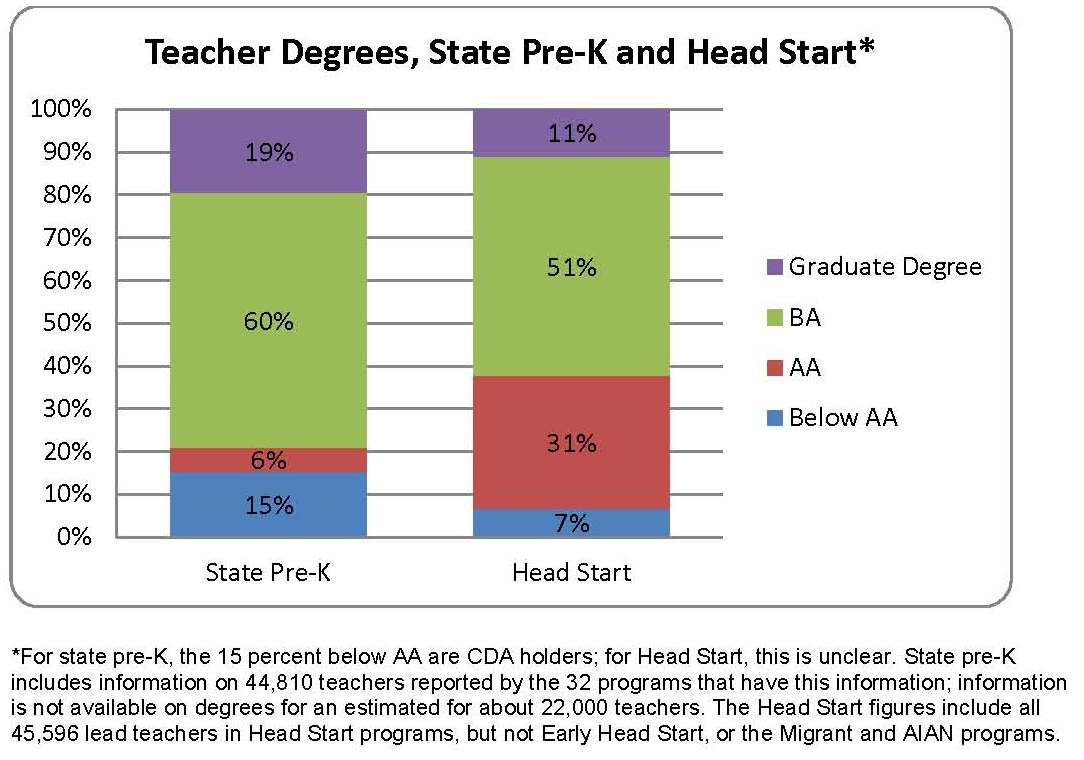How Much Do Early Childhood Educators Make: Salary Insights Revealed

Early childhood educators make an average salary of $30,000 to $45,000 per year. This can vary based on location and experience.
In the field of early childhood education, professionals play a vital role in shaping the development and growth of young children. The demand for qualified educators continues to rise, making it a rewarding career choice for those passionate about working with children.
From creating engaging lesson plans to fostering a nurturing learning environment, early childhood educators make a significant impact on the lives of their students. This profession requires patience, creativity, and a genuine love for teaching. As the importance of early childhood education becomes more recognized, the value of these educators in society continues to grow.

Credit: www.4cforkids.org
Factors Affecting Early Childhood Educators’ Salary
Factors influencing early childhood educators’ salaries include qualifications, experience, geographic location, and type of setting. Salaries can vary significantly based on these factors, with higher qualifications and experience generally correlating with increased pay. Geographic location also plays a crucial role in determining salary levels, with urban areas often offering higher compensation than rural areas.
Factors Affecting Early Childhood Educators’ Salary Early childhood educators’ salaries can vary based on a variety of factors. Understanding these factors can help individuals in the field to make informed decisions about their career paths. Education Level, Years of Experience, and Location all play a crucial role in determining an early childhood educator’s salary. Education Level The level of education an early childhood educator attains can significantly impact their earning potential. Those with higher degrees, such as a Bachelor’s or Master’s in Early Childhood Education, often command higher salaries than those with only a high school diploma or an associate degree. Years of Experience Experience also plays a vital role in determining the salary of early childhood educators. As educators gain more experience and expertise in the field, they become more valuable to employers, leading to potential salary increases. This can be seen as a reward for the dedication and expertise gained over time. Location Location is another critical factor in determining early childhood educators’ salaries. The cost of living and demand for educators can vary significantly from one region to another. Urban areas or regions with higher living costs may offer higher salaries to early childhood educators compared to rural areas. In conclusion, early childhood educators’ salaries are influenced by their education level, years of experience, and location. Understanding these factors can help educators make informed decisions about their career paths.
Credit: dreambound.com
Salary Range For Early Childhood Educators
Early childhood educators play a crucial role in the development and education of young children. Their dedication and hard work are reflected in the salary range they receive. The compensation for early childhood educators varies based on factors such as education, experience, location, and the type of institution they work for.
Lowest-paid Early Childhood Educators
At the lower end of the salary scale, early childhood educators may earn around $20,000 to $30,000 annually. This salary range is often typical for entry-level positions or those working in smaller daycare centers or preschools. Limited experience and educational qualifications may contribute to the lower end of the pay scale.
Highest-paid Early Childhood Educators
On the higher end of the spectrum, experienced early childhood educators in positions such as lead teachers or program directors can earn salaries ranging from $40,000 to $60,000 or more annually. Individuals with advanced degrees, specialized training, and leadership roles in larger educational institutions tend to fall into this higher salary bracket.
Job Prospects For Early Childhood Educators
Job prospects for early childhood educators are promising, with a growing demand for skilled professionals in this field. As society recognizes the crucial role of early childhood education in shaping young minds, the need for qualified educators continues to rise. This section explores the industry growth outlook and career advancement opportunities for early childhood educators.
Industry Growth Outlook
The early childhood education industry is experiencing steady growth, driven by increased awareness of the importance of early childhood development. According to the Bureau of Labor Statistics, the employment of preschool teachers is projected to grow by 7% from 2018 to 2028, which is faster than the average for all occupations. This growth is attributed to the emphasis on early childhood education and the expansion of pre-kindergarten programs. With a positive industry outlook, early childhood educators can expect a stable job market and ample opportunities for employment.
Career Advancement Opportunities
Early childhood educators have various avenues for career advancement, including pursuing specialized certifications and advancing to leadership roles. Obtaining a Child Development Associate (CDA) credential can enhance career prospects and open doors to higher-paying positions. Additionally, experienced educators can transition into administrative or supervisory roles, such as preschool directors or education coordinators. By demonstrating expertise and leadership skills, early childhood educators can progress in their careers and take on more challenging and rewarding roles within the field.
How To Maximize Your Ece Salary
When it comes to maximizing your early childhood educator (ECE) salary, there are several key strategies you can employ to ensure you are being fairly compensated for your important work. By implementing negotiation tips, pursuing professional development, and considering specialization, you can enhance your earning potential and advance your career in the field of early childhood education.
Negotiation Tips
When negotiating your salary as an early childhood educator, it’s important to research industry standards and be prepared to articulate your value to potential employers. Highlight your experience, qualifications, and any additional certifications or training you possess. Be confident in presenting your case for fair compensation, and consider seeking guidance from professional associations or mentors in the field.
Professional Development
Investing in ongoing professional development can significantly impact your earning potential as an ECE. Pursuing advanced degrees, attending workshops and conferences, and staying informed about the latest trends and best practices in early childhood education can demonstrate your commitment to excellence and open doors to higher-paying opportunities.
Specialization
Consider specializing in a particular area of early childhood education, such as special needs education, curriculum development, or administration. By honing your expertise in a specific niche, you can position yourself as a valuable asset to employers and potentially command a higher salary. Additionally, specialized training and experience can lead to greater job satisfaction and career advancement.
Challenges Faced By Early Childhood Educators
Early childhood educators play an important role in the development of young children. Despite this, they face numerous challenges in their profession. In this section, we will discuss three of the most significant challenges faced by early childhood educators, including low compensation, lack of benefits, and workload.
Low Compensation
One of the most significant challenges faced by early childhood educators is low compensation. According to the Bureau of Labor Statistics, the median annual wage for preschool teachers is $30,520, which is significantly lower than the median wage for all occupations. Furthermore, many early childhood educators work part-time or on a contract basis, which can further reduce their overall compensation.
Despite the critical role they play in the development of young children, early childhood educators are often undervalued and underpaid. This can lead to high turnover rates and difficulty in attracting and retaining qualified educators.
Lack Of Benefits
In addition to low compensation, early childhood educators often lack access to benefits such as health insurance, retirement plans, and paid time off. This can make it challenging for them to maintain a decent standard of living and can lead to financial instability.
Without access to benefits such as health insurance, early childhood educators may be unable to afford necessary medical care, leading to higher rates of illness and absenteeism. This can further impact their overall compensation and job security.
Workload
Finally, early childhood educators face significant workload challenges. They are often responsible for planning and implementing age-appropriate curricula, managing classroom behavior, and communicating with parents and caregivers. Additionally, they may be required to attend staff meetings, professional development workshops, and other job-related events outside of regular work hours.
The workload of early childhood educators can be physically and emotionally demanding, requiring them to be patient, compassionate, and flexible. This can lead to burnout and high levels of stress, further impacting their overall job satisfaction and well-being.
Early childhood educators face numerous challenges in their profession, including low compensation, lack of benefits, and workload. Addressing these challenges is crucial to ensuring that early childhood educators can provide high-quality care and education to young children and maintain a decent standard of living.

Credit: www.zerotothree.org
Frequently Asked Questions
What Is The Highest Paying Job In Early Childhood Education?
The highest paying job in early childhood education is typically a director or administrator position.
What Is The Highest Paid Job In Childcare?
The highest paid job in childcare is a childcare center director or early childhood education director. They oversee operations and staff, ensuring high-quality care and education. This role requires leadership, management, and education expertise. With experience and qualifications, directors can earn competitive salaries in the childcare industry.
How Much Do Daycare Teachers Make In Texas?
Daycare teachers in Texas make an average of $12 to $15 per hour. Salaries can vary based on experience and qualifications.
What Is The Highest Paid Preschool Teacher?
The highest paid preschool teachers typically hold advanced degrees and certifications, with salaries varying by location and experience.
Conclusion
Early childhood educators play a vital role in shaping young minds. The compensation for this rewarding profession varies based on experience and location. However, it’s important to consider the value of making a positive impact on the future generation. As the demand for qualified educators continues to rise, so do the opportunities for career growth and financial stability in this field.
Lorem Ipsum is simply dummy text of the printing and typesetting industry. Lorem Ipsum has been the industry’s standard dummy text ever since the 1500s, when an unknown printer took a galley of type and scrambled it to make a type specimen book.





